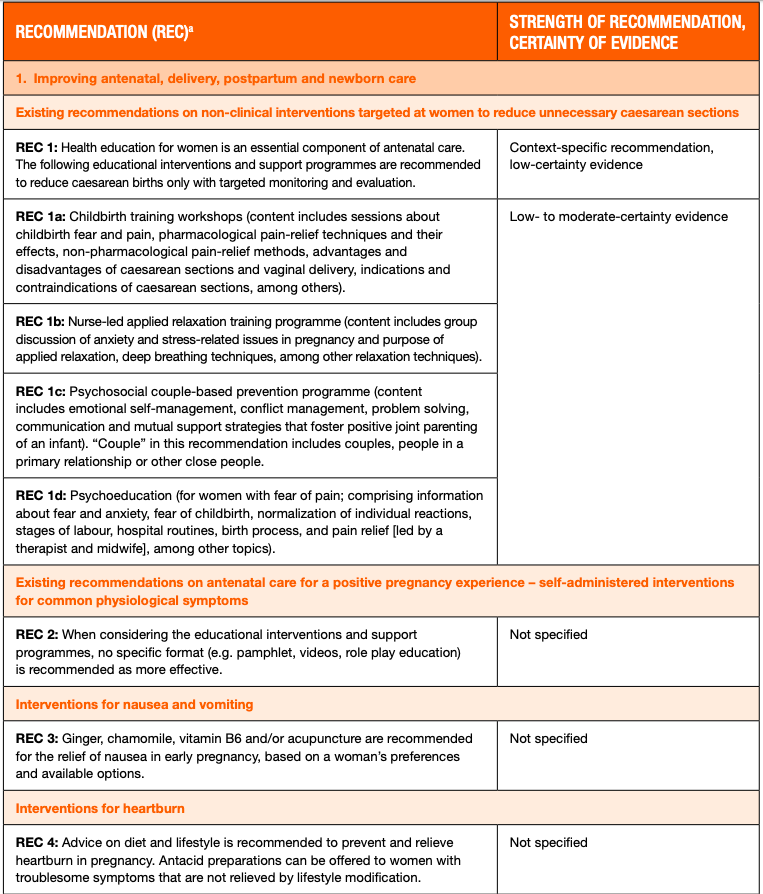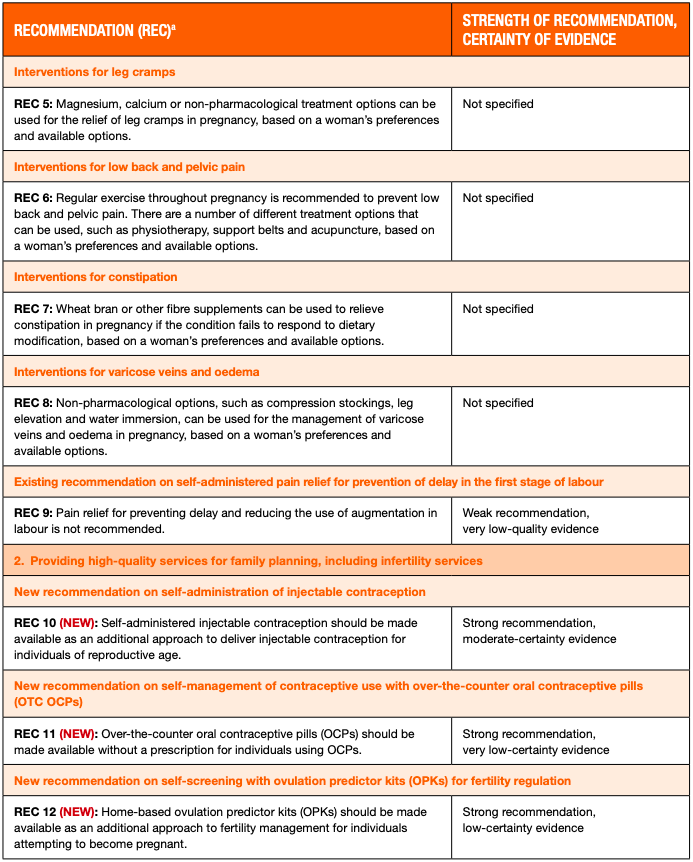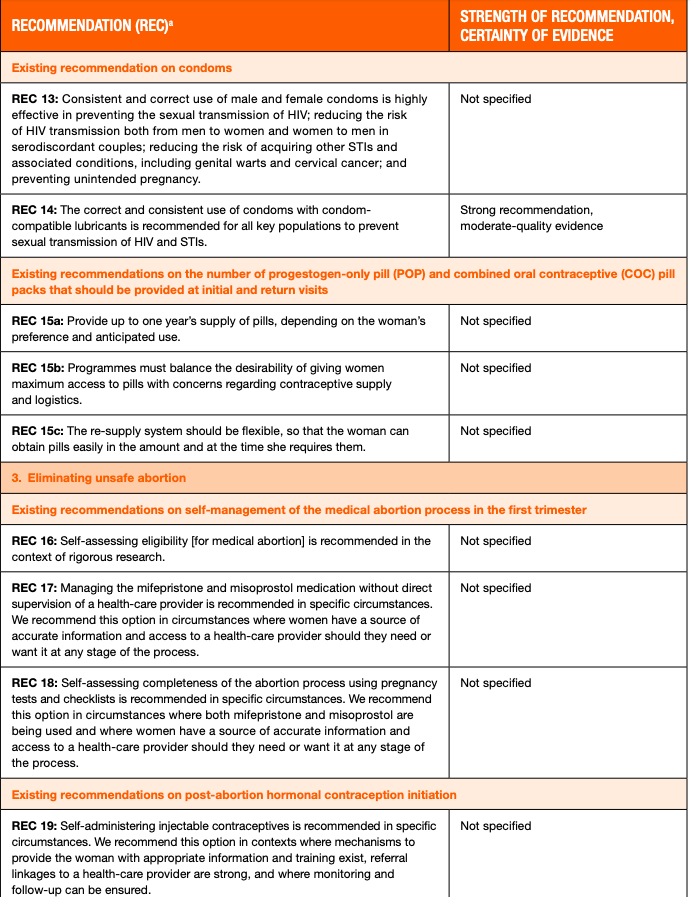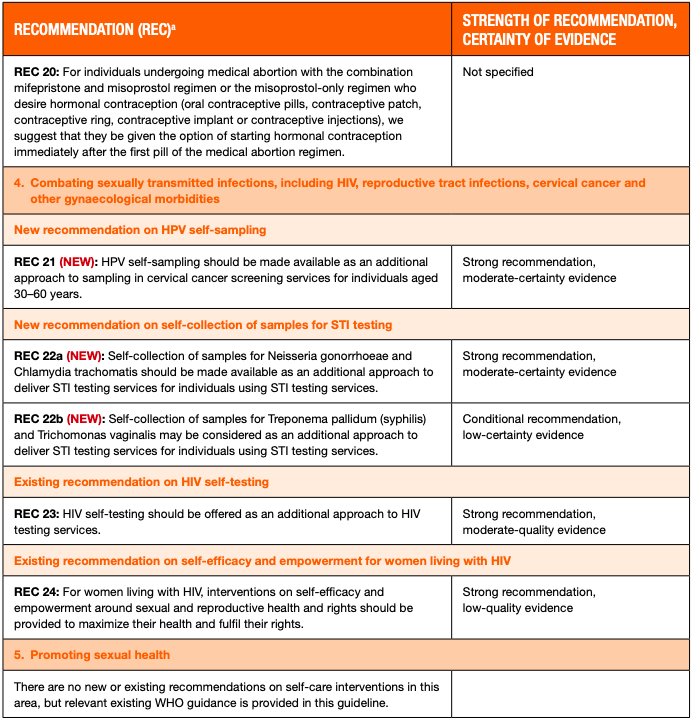
 The World Health Organisation(WHO) has launched its first guideline on self-care interventions for health. This move was in response to the fact that at least 400 million people worldwide lack access to the most essential health services.
The World Health Organisation(WHO) has launched its first guideline on self-care interventions for health. This move was in response to the fact that at least 400 million people worldwide lack access to the most essential health services.
By 2035, there will be an estimated shortage of nearly 13 million healthcare workers. Around one in five of the world’s population will be living in settings that are experiencing humanitarian crises. The first volume of the guideline focuses on sexual and reproductive health and rights. Some of the interventions include self-sampling for HPV and sexually transmitted infections, self-injectable contraceptives, home-based ovulation predictor kits, HIV self-testing and self-management of medical abortion.
These guidelines look at the scientific evidence for health benefits of certain interventions that can be done outside the conventional health sector, although sometimes with the support of a health-care provider. They do not replace high-quality health services nor are they a shortcut to achieving universal health coverage.
WHO explains Self-care as “the ability of individuals, families and communities to promote health, prevent disease, maintain health, and cope with illness and disability with or without the support of a health-care provider”.
Following are some of the main new recommendations on self-care interventions for sexual and reproductive health;
1. Improving antenatal, delivery, postpartum and newborn care
2. Providing high-quality services for family planning, including infertility services
3. Eliminating unsafe abortion
4. Combating sexually transmitted infections, including HIV, reproductive tract infections, cervical cancer and other gynaecological morbidities.




In launching this guideline, WHO recognizes how self-care interventions could expand access to health services, including for vulnerable populations. “People are increasingly active participants in their own health care and have a right to a greater choice of interventions that meets their needs across their lifetime, but also should be able to access, control, and have affordable options to manage their health and well-being,” it said.
WHO also noted that self-care is also a means for people who are negatively affected by gender, political, cultural and power dynamics including those who are forcibly displaced, to have access to sexual and reproductive health services, as many people are unable to make decisions around sexuality and reproduction.
WHO’s first consolidated guideline on self-care interventions for health – starting with the importance of sexual and reproductive health and rights – is a step in placing people at the centre of health care, bringing quality interventions to them, while maintaining the accountability of the health system.
However, the guidelines will be expanded to include other self-care interventions, including for prevention and treatment of noncommunicable diseases. WHO is establishing a community of practice for self-care, and will be promoting research and dialogue in this area during self-care month 24 June to 24 July.
Source: The Hindu
https://apps.who.int/iris/bitstream/handle/10665/325480/9789241550550-eng.pdf?ua=1